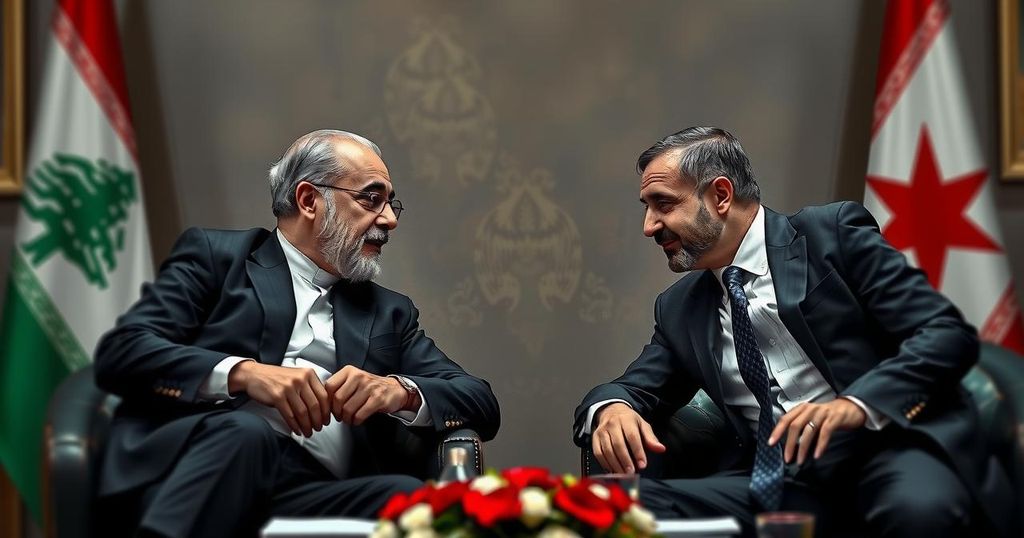During his visit to Beirut, Iranian official Ali Larijani pledged Iran’s support for Lebanon in the midst of ongoing negotiations for a cease-fire between Israel and Hezbollah. He emphasized that Iran does not intend to disrupt but rather seeks resolution, while acknowledging Hezbollah’s significant role in the region. As attacks from Israel continue, Lebanon grapples with substantial damage and loss of life stemming from the conflict.
In a recent visit to Beirut, senior Iranian official Ali Larijani affirmed Iran’s unwavering support for Lebanon amidst ongoing discussions aimed at achieving a cease-fire between Israel and Hezbollah. Following meetings with Lebanese caretaker Prime Minister Najib Mikati, Larijani emphasized Iran’s commitment to the Lebanese people and its officials. He characterized Hezbollah as a “wise movement” while expressing optimism for a resolution to the crisis that would allow displaced individuals in southern Lebanon to return home. Larijani’s remarks, notably supportive of Hezbollah, signal Iran’s intent to back negotiations for peace in the region. Concurrently, Israeli airstrikes continue to affect Lebanon, exacerbating the humanitarian crisis as Lebanon faces significant physical and economic damages, further compounded by the ongoing conflict in Gaza, which has already led to a staggering death toll.
The situation in Lebanon has escalated due to intense conflicts with Israel, particularly involving the militant group Hezbollah. Following rocket attacks from Hezbollah and airstrikes by Israel, tensions have surged, resulting in significant casualties on both sides. The humanitarian implications are dire, especially for displaced persons. In this context, Iran’s support for Lebanon, particularly for Hezbollah, comes as both a political stance and a strategic alignment within the broader framework of Middle Eastern geopolitics. The involvement of the United States in trying to broker peace highlights the complex web of international diplomacy at play.
Iran’s pledge to support Lebanon, articulated by Ali Larijani during his visit, underscores the ongoing geopolitical tensions in the region, particularly concerning Hezbollah and its role against Israel. As Israeli airstrikes continue, the situation remains volatile, with significant humanitarian costs already evident. The attempt to broker a cease-fire amidst these hostilities reflects the challenging landscape of Middle Eastern politics, emphasizing the need for a sustainable resolution to the conflict.
Original Source: www.voanews.com






